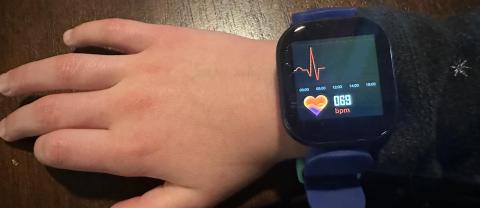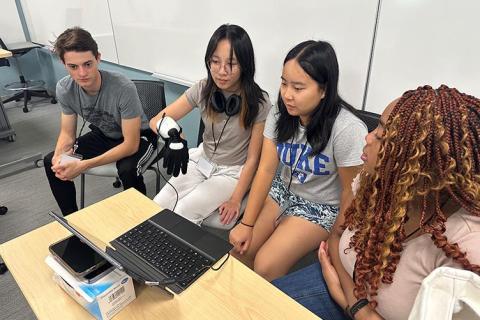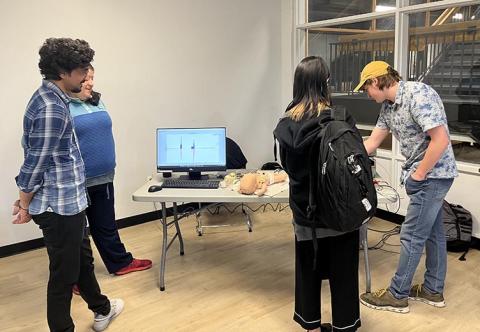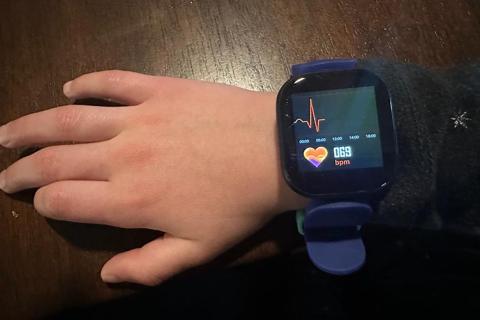
Wearables are devices utilized for rehabilitation purposes. They provide real-time biodeedback information about a physiological or biomechanical processes. There are a range of devices currently on the market and new wearables emerging rapidly.
To be on the cutting-edge new technologies, students and professionals need a space to explore and learn about these innovations. CDHI provides wearables for research and student learning. CDHI also works with other departments on campus on the development of wearables.
Student and Professional Learning Opportunities

The CDHI utilizes the MediTouch system to teach best practices around the use of biofeedback for rehabilitation. This system can be used for the following conditions:
- Neurological Conditions i.e., stroke, traumatic, brain injury, multiple sclerosis,
- Orthopedic injures i.e., fractures
- Movement Disorders i.e., Parkinson’s disease, Complex Regional Pain Syndrome, hand burns
- Hand Operations i.e., tendon transfer surgery, children with Cerebral Palsy, children with developmental coordination disorders.

Dr Alyssa O’Brien, Clinical Associate Professor of Nursing, regularly mentors graduate students in the Electrical Computer Engineering Department. Together with Dr. John LaCourse, Professor, Chair of the ECE department, students gain the skills they need to create biomedical devices with actual real-world applications in the healthcare field. Here, Dr. O’Brien is pictured with Doctoral Candidate Prashant Purohit and Master’s Degree student Marc Tausanovitch. Mr. Purohit and Mr. Tausanovitch were invited to show their work at a recent Nursing Department event “Just Breathe” in the Memorial Union Building. Over 250 students attended the event, many from nursing, and had the opportunity to see firsthand the work that goes into developing the devices they use in the clinical setting every day. Many faculty from the Nursing Department have been involved in helping Mr. Purohit with his work, bringing a collaborative discourse that allows a deeper understanding of potential barriers and facilitators that occur at the bedside.
Community Initiatives
Rural Telerehabilitation

This initiative combines distance learning and telemedicine, catering to the unique needs of rural areas. Our focus sites include two rural libraries, a Cooperative Extension office, and a youth and senior center, all essential hubs within these communities. These sites are outfitted with the MediTouch system and connected with students and faculty to run rehabilitation programming using this augmented biofeedback system.
This technology aims to enhance the capacity for telerehabilitative services within the consortium, allowing for expanded care and offering valuable educational experiences across various disciplines at UNH CDHI. Join us on this transformative journey into the realm of VR for improved healthcare and education in rural communities.
Research
Biofeedback Emotional Regulation Training

Partnered with the University of New Hampshire's Child Study and Development Center (CSDC), our research explores using smartwatches for heart rate monitoring in the Biofeedback Emotional Regulation Training (BERT) program. We aim to teach preschoolers relaxation and mindfulness through weekly interventions, assessing the feasibility of integrating biofeedback devices. The study's outcomes will inform the use of heart rate watches in BERT, fostering emotional regulation skills in young children and paving the way for promising practices and a potential BERT training program for preschoolers.